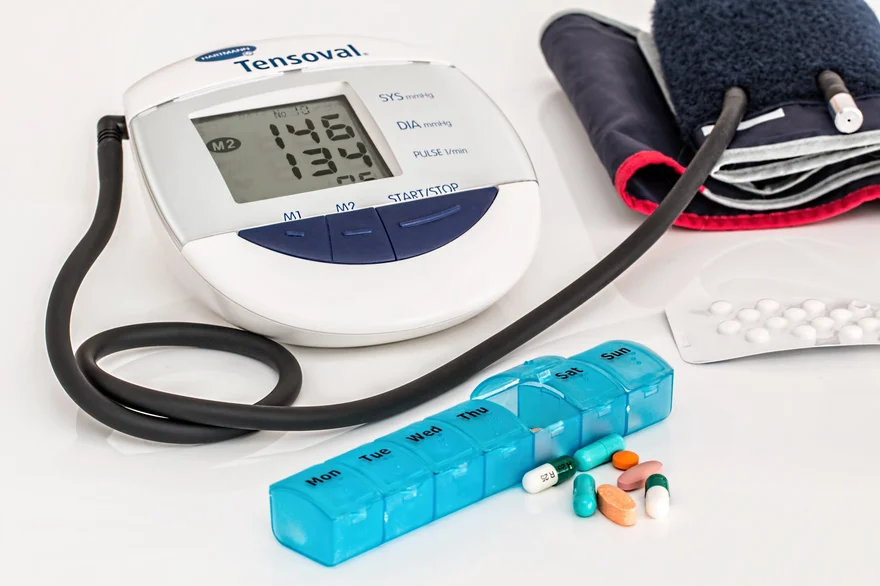Preventive Healthcare
Debunking top 5 myths around thyroid disorders #ThyroidHealthIsCrucial
8656 Views
0

The thyroid gland is a vital organ that controls the metabolism, growth, and development of your body. It is butterfly-shaped and located on the front of your neck, at the base just below Adam’s apple. This gland produces two hormones, triiodothyronine (T3) and thyroxine (T4), through which it regulates various body functions. A matter of grave concern is that the statistics are showing a steady rise in thyroid diseases in the Indian population. At large, thyroid diseases include hypothyroidism (underactive thyroid), hyperthyroidism (overactive thyroid), goiter, thyroid cancer, and thyroid nodules. According to an epidemiological study on thyroid disease*, it has been estimated that about 42 million people in India suffer from thyroid diseases, and hypothyroidism happens to be the most common thyroid disease.
Even though thyroid disorders are common, people have many misconceptions about them. Here we are debunking 5 top myths about thyroid conditions:
Myth #1: Thyroid disease gives you obvious symptoms, hence is easy to get diagnosed.
Fact: You may have thyroid disease but not have any symptoms. In fact, the symptoms can be subtle and get easily overlooked. In addition, symptoms of thyroid disease include weight gain or loss, fatigue, and diarrhea or constipation, irregular periods, etc., which are quite common and could occur due to other health issues too. Due to the subtlety and overlap, it can be tricky to diagnose thyroid disease. Your best bet to keep track of your thyroid health and hormone levels is a thyroid panel test. It is a simple blood test that can identify thyroid problems before symptoms occur. Do not wait for symptoms to get a test done, especially if you have a family history of thyroid conditions.
Myth #2: Low thyroid hormone levels (hypothyroidism) affect women only.
Fact: While it is true that far more women develop under-active thyroid than men, it is not uncommon for men to be diagnosed with hypothyroidism. If you are a man with a family history of hypothyroidism, do not ignore the possibility of developing the condition. If you're healthy, both men and women should get their thyroid function tests done every five years. However, you may need to get tested more often depending on the presence of risk factors (like being female, having age over 60 years, family history, having an autoimmune disease). If you have been diagnosed with hypothyroidism, get tested once every two to three months for the first year till the hormone levels stabilize and treatment is optimized. After this, an annual check will suffice unless you develop new symptoms or experience reappearance of any old symptom.
Myth #3: You can stop your thyroid medicines when the symptoms get better.
Fact: Not at all! Your symptoms have got better because your medicines are helping you. Stick to your prescription and do not stop having medicines unless advised by your doctor. Stopping your medicines can cause your symptoms to return. Remember, thyroid medicine works best when taken on an empty stomach, spaced an hour before the meal.
Myth #4: People with a thyroid disorder should not eat cruciferous vegetables like broccoli, cabbage, cauliflower, etc.
Fact: The claim that cruciferous vegetables including broccoli, cauliflower, etc. can worsen thyroid conditions has arisen from the thought that these veggies interfere with how your thyroid uses iodine. Iodine is important for hormone production in the thyroid gland. But the fact is, practically these are part of balanced nutrition and only an unrealistic excessive intake might cause any interference with iodine. So you can (and should) consume cabbage, cauliflower, and other veggies of the same group, even if you have a thyroid disorder.
Myth #5: Hypothyroidism is always caused due to an underlying autoimmune condition.
Fact: Though the most common cause of hypothyroidism (low thyroid levels) is an autoimmune disease called Hashimoto’s thyroiditis, it isn’t the sole cause. Other factors like genetics, problems with the pituitary gland (regulates signal for the production of thyroid hormones), certain medicines can also cause a decline in your thyroid hormone levels. However, it is possible to track if Hashimoto’s thyroiditis is the cause in your case. This is an autoimmune condition, which means the body’s own immune system is attacking the healthy thyroid cells through certain antibodies. These thyroid antibodies can be traced through a simple lab test called a thyroid antibody test. This test looks for various types of thyroid antibodies like thyroid per oxidase antibody (TPO), thyroglobulin antibody (TGAb), thyroid-stimulating hormone receptor antibodies (TSHRAb). It is important to know the cause to get the right treatment and relieve thyroid symptoms.
Hope we have cleared the clouds you had in your mind around thyroid diseases. Do not hesitate to mention any symptoms to your doctor. Ensure to get your hormone levels checked on a regular basis and keep a check on your thyroid health.























 WhatsApp
WhatsApp